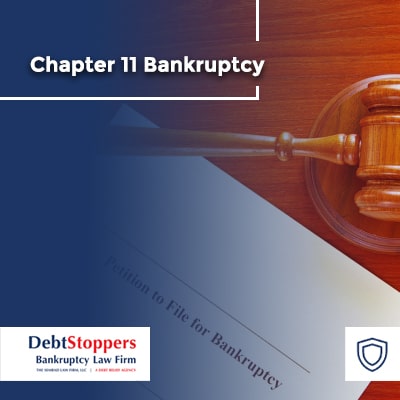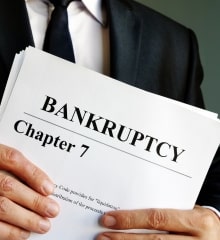The satirical news outlet The Onion has acquired Infowars, the conspiracy-driven platform founded by Alex Jones, through a bankruptcy auction.
The Onion announced their plan to relaunch the platform in January 2025, focusing on parodying internet personalities and promoting awareness on issues like gun violence prevention.
This acquisition, supported by families of the Sandy Hook Elementary School shooting victims, aims to transform Infowars into a site dedicated to humor and education, countering its previous dissemination of misinformation.

Who is Alex Jones and Did He File for Bankruptcy?
Alex Jones has become well known as the founder of Infowars, which is regarded by many as a conspiracy-driven media platform. He faced significant legal and financial trouble following his false claims about the 2012 Sandy Hook Elementary School shooting. These events led to substantial defamation judgments and subsequent bankruptcy proceedings.
Alex Jones Legal Issues
In 2022, families of the Sandy Hook victims filed defamation lawsuits against Jones for his repeated assertions that the tragic shooting was a hoax. Courts ruled in favor of the families, awarding them nearly $1.5 billion in damages. These judgments aimed to hold Jones accountable for the distress caused by his misinformation.
Alex Jones Bankruptcy Filings
In December 2022, Alex Jones filed for Chapter 11 personal bankruptcy. Chapter 11 bankruptcy was intended to reorganize his debts and protect his assets while addressing the court-ordered payments.

Chapter 11 Bankruptcy
Chapter 11 bankruptcy is sometimes referred to as “reorganization bankruptcy,” is primarily used by businesses and sometimes individuals seeking to restructure their debts and continue operations while addressing financial issues. Unlike Chapter 7, which involves liquidation, or Chapter 13, which includes a structured repayment plan for individuals, Chapter 11 is a more complex and flexible option that allows companies and sometimes individuals with high debt levels to reorganize their finances.
Chapter 11 is designed to help businesses and high-networth individuals reorganize and restructure their debts, allowing them to remain operational while implementing a feasible plan to pay creditors over time. As soon as Chapter 11 bankruptcy is filed with a bankruptcy court, an automatic stay is initiated; an automatic stay immediately halts all collection actions from creditors.
Next, the business or individual develops a reorganization plan detailing how they will manage and repay debts. The plan must be approved by the court and accepted by creditors. Chapter 11 cases can take months or even years to complete, depending on the complexity of their financial situation and the reorganization plan. The plan may propose ways to reduce debt, such as modifying interest rates, extending payment schedules, or reducing the total debt owed.
If a business files for Chapter 11 bankruptcy, it will usually continue to operate under “debtor-in-possession” status, meaning current management retains control while following the court-approved plan. Creditors vote on the plan, and the court must confirm it. If certain creditors disagree, the court can still approve the plan under “cramdown” provisions if it’s deemed fair.
Chapter 11 allows the business to stay open and operational, which can preserve jobs and customer relationships. By restructuring debts, Chapter 11 can make debt more manageable, often allowing the business to become profitable again.
It should also be noted that Chapter 11 is expensive and involves extensive legal, accounting, and administrative costs. It’s also more complex than other types of bankruptcy. The process can be lengthy, especially for large companies with complicated debt structures. The success of a Chapter 11 reorganization depends on court and creditor approval, which isn’t guaranteed. If the plan fails, the business may need to convert to Chapter 7 and liquidate.
Many large companies use Chapter 11 to reorganize during financial hardship without ceasing operations. Sometimes high-income individuals with substantial debt file Chapter 11 if they exceed Chapter 13 limits.
Overall, Chapter 11 bankruptcy offers businesses a path to financial recovery by restructuring debt while continuing operations. However, it requires a significant commitment of time and resources, and the company must work closely with legal and financial professionals to navigate the process successfully.
Liquidation of Infowars
In June 2024, the bankruptcy trustee overseeing Jones's case announced plans to shut down Infowars and liquidate its assets to help satisfy the defamation judgments. This decision led to a court-approved auction of Infowars in September 2024.
Acquisition by The Onion
On November 14, 2024, The Onion, a satirical news outlet, acquired Infowars at a bankruptcy auction. Supported by the Sandy Hook families, The Onion plans to relaunch Infowars in January 2025 as a platform for satire and education, aiming to counteract misinformation and promote awareness on issues like gun violence prevention.
Current Status
After the sale, Infowars' website was offline, and Jones began broadcasting from a new studio location. He has expressed intentions to challenge the sale in court.





